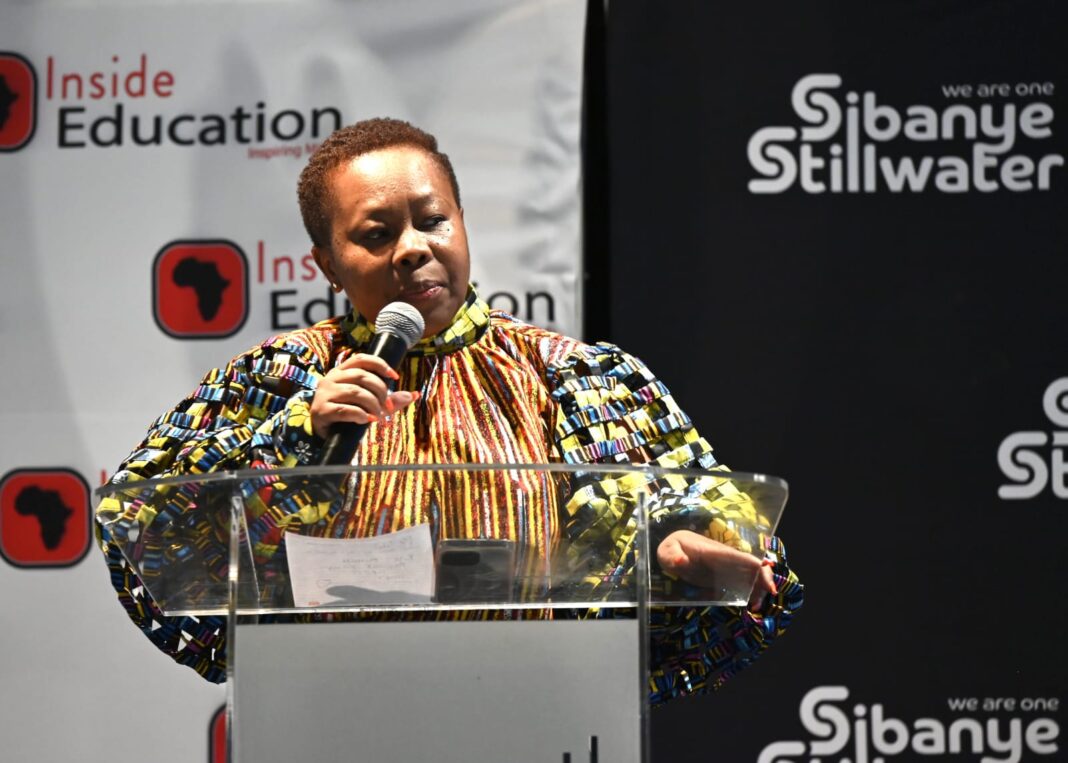By Johnathan Paoli
Sibanye-Stillwater has underscored the urgent need for the country to prioritise skills development as a cornerstone for economic growth.
The company’s stakeholder relations executive vice president Thabisile Phumo highlighted the stark contrast between South Africa and countries like China, where vocational training was often seen as a first choice rather than a fallback option.
She was speaking at the Skills Development Dialogue under the theme: “Reimagining Education for a Better Future”, hosted by Sibanye-Stillwater and Inside Education at the University of Johannesburg on Thursday.
“In China, people become artisans not as a plan B, but as a first option because they understand the value of skills. We have to know that economies are built by skills,” she said.
Phumo stressed the need of Technical and Vocational Education and Training (TVET) colleges in addressing this crisis.
“There is space for university education, but there is an even bigger space for TVET education because we are a country in crisis,” she said.
Phumo proposed the implementation of quotas for gifted learners from matric to enrol in TVET colleges, emphasising that this approach could significantly alleviate the skills shortage that plagued various sectors, including engineering, healthcare and information technology.
“May our children aspire to be artisans. May they see the value of skills that can be used here and beyond,” she said.
The event, which aimed to explore the integration of skills-based learning into the education system from early childhood, reflected a broader government initiative to prioritise TVET education.
With limited access to traditional university pathways for many South Africans, TVET colleges represented a viable alternative for skills development, fostering pathways to gainful employment and economic stability.
Phumo noted the potential benefits of a more skilled workforce, and said the positive ripple effects of an approach focused on skills extended beyond economic benefits; they empowered individuals to pursue new opportunities and personal success.
“By making training and skills development accessible, we can help people upskill themselves and stand a better chance of escaping poverty.”
The dialogue also called for collaboration among students, educational institutions, and public-private partnerships to bridge the skills gap effectively.
Phumo urged students to align their educational choices with market demands and pursue internships and apprenticeships to enhance employability.
As the nation faces the dual challenges of economic stagnation and high unemployment, the call for a renewed focus on skills development resonates deeply.
Phumo’s vision for a South Africa built on a foundation of skilled artisans and professionals presents a pathway to not only combat poverty, but also drives innovation and economic growth. The dialogue served as a vital platform for discussing the importance of skills-based education as South Africa seeks to navigate its current crisis and build a more prosperous future for its citizens
INSIDE EDUCATION







